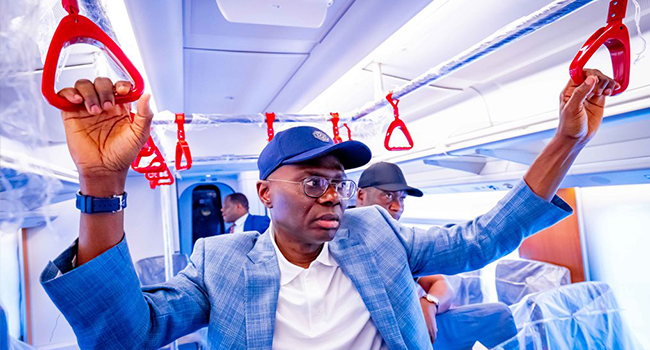In Lagos, names matter. Street as well as place names refuse to stop at signage and instead they travel through history, identity, and emotional terrain of the people who live with and unconsciously negotiate their daily lives through them. Unconsciously, until the recent renaming jolted their collective memory and shared history.
So when Ilaje Road in Bariga suddenly became King Sunny Ade Boulevard, or when the once-iconic Charly Boy Bus Stop quietly morphed into Baddo Bus Stop, it was not just asphalt that shifted, but meaning, memory, and the quiet politics of presence.
At first glance, the Lagos State Government’s street-renaming spree seems harmless, even celebratory. Honour the legends. Elevate heroes. Showcase cultural pride. But beneath this civic facelift lies a deeper unrest—a governance style that prioritises symbolic gestures over democratic process, and in doing so, risks replacing one form of exclusion with another.
When Names Disappear, So Do People
Consider Ilaje. The name does not belong to a person, but to a people—a coastal ethnic group with deep roots in Lagos. Its sudden disappearance from the city’s cartographic consciousness was met with anger, not applause.
High Chief Kayode Ayetiwa, Baale of Ilaje, called a press conference to denounce the act. “Ilaje is not an individual,” he said. “It is a people. You don’t erase a people to honour a person.” That erasure, he argued, was done without consent, consultation, or constitutional process.
This is not an isolated critique. Legal heavyweight Femi Falana has pointed out the procedural flaw: such renamings, under the law, require the approval of the Lagos State House of Assembly, something apparently bypassed.
Meanwhile, commuters and okada riders remain mostly unfazed, continuing to direct passengers using familiar language. “Take me to Charly Boy,” they still say. Because the psyche remembers what the state forgets.
Renaming in a Fractured Republic
But the implications go deeper still. Governance must be reframed as narrative stewardship. Renaming without dialogue is not just authoritarian, it is ontologically violent. It deletes the “people” from the polity.
We are in a country where every name is already loaded ethnically, politically, spiritually. To rename streets in a time of post-election tension and growing ethnic suspicions is not just tone-deaf; it’s combustible.
When winners write history in concrete, and losers lose not only elections but memory, we set the stage for deeper fragmentation. 2027 lurks in the background, and Lagos, Nigeria’s symbolic nerve centre cannot afford these silent provocations and civic erasures.
What Other African Cities Teach Us about Memory and Process
Street renaming is not unique to Lagos. Across Africa, cities have used it to reckon with history, sometimes to heal, sometimes to assert dominance, and sometimes to provoke.
In Pretoria, South Africa, the post-apartheid government renamed dozens of roads bearing colonial or Afrikaner names, replacing them with ANC figures. The backlash was fierce. Some residents saw it as justice; others as erasure. The deeper lesson? Renaming without wide consensus can entrench division rather than reconciliation, especially when memory remains raw.
In Dakar, Senegal, where street signs still honour French generals and colonial governors, the fight isn’t over naming; it’s over reclaiming. Activists argue that keeping colonial names isn’t neutral; it’s a quiet endorsement of conquest. But unlike Lagos, where local heritage like “Ilaje” is being stripped away, Dakar’s push is for localisation to elevate the indigenous over the imperial.
Then there’s Nairobi, where renaming Moi Avenue or installing Dedan Kimathi statues came after public debate, not behind closed doors. These changes were not just symbolic, but also therapeutic, shaped by consultations that gave the public a sense of ownership over their past and future.
The Street Sign as a Signal of Belonging
Renaming a road may seem administrative, but it taps deep reservoirs of identity, pride, grievance, and belonging. The real lesson for Lagos is this: if you do not democratize memory, you risk weaponising it.
Process matters as much as outcome. The difference is not in the act of renaming, but in the process that surrounds it.
Which brings us to the heart of the matter: in plural states like Nigeria, power must tread softly. Street signs are not just functional; they are signals of belonging. Renaming them without process may be read as not merely careless.
It is a microcosm of a broader disease: the ease with which governments bypass people, assuming that performance equals governance and decree equals legitimacy.
Memory Has No Bus Stop
Memory does not obey traffic rules. It cannot be rerouted by fiat or made to disembark at a convenient intersection. It lingers—in grief, in pride, in names whispered by grandmothers or etched on faded compound gates. To rename a street is not just to swap signboards; it is to redraw the emotional map of a city, to tell its people who counts and who can be forgotten.
A historically aware and culturally grounded approach would not fear these tensions. It would invite them through listening sessions, public archives, and civic participation. Because in a democracy, history is not handed down like a royal decree. It is built, debated, and remembered together. If memory has no bus stop, where does it go when the map changes?
In the end, the real question is not whose name hangs on the corner of a Lagos street. It is whose story survives the journey. And for that, there can be no final bus stop.
Lekan Olayiwola is a public-facing peace & conflict researcher/policy analyst focused on leadership, ethics, governance, and political legitimacy in fragile states.



